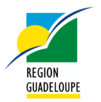The EU’s 2014-2020 cohesion policy plans to invest a total of 367 billion euros in European cities and regions, as well as in real economy. It constitutes the EU’s main investment tool for reaching Europe 2020 goals (read box).
Find out more about the 2014-2020 cohesion policy
Guadeloupe enjoys the European Union’s (EU) financial support as part of its European cohesion policy, which aims at reducing social and economic development gaps among the Community’s various regions. In particular between continental Europe and outermost regions (Azores, Canary islands, Guadeloupe, French Guyana, Madeira, Martinique, Mayotte, Reunion, Saint-Martin).
This support mostly translated into the various European funds granted to our archipelago over the past twenty years. The EU’s financial support complements national, regional and local aid spread across the Community area’s regions. It aims at supporting projects involving numerous sectors: training, industry, craft, tourism, technologies, financial engineering, environment, land use planning…
Guadeloupe also benefits from a regional cooperation programme called Interreg Caribbean.
The Various European Funds
European funds are mobilised via four operational programmes:
- The ERDF programme (European Regional Development Fund).
- The ESF programme (European Social Fund).
- The EAFRD programme (European Agricultural Fund for Rural Development).
- The EEF operational programme (European Fisheries Fund).
For the 2007-2013 programming period
The overall budget of European funds (ERDF, ESF, EAFRD and EEF) amounts to about 870 million euros. European funds have supported more than 11 000 actions across the territory, benefiting nearly 1 700 entities.
- ERDF 2007-2013 operational programme
- 73% of funds to be devoted to infrastructures (water network, sanitation, ports and airports, tourism).
- 19% of funds to be devoted to supporting businesses’ competitiveness (development, innovation).
- Supporting 1560 Guadeloupean businesses.
- Creating 300 jobs.
- Equipping 19 waste water treatment plants.
- Supporting 20 innovative projects in the field of agro-processing.
- Supporting 30 lodge/hostel construction or enhancement projects.
- Developing the cruise industry: 160 000 cruise passengers in 2013, versus 90 000 in 2007.
- ESF 2007-2013 operational programme
- 30 000 job seekers have benefited from actions aiming at increasing their qualifications and employability (professional certifications and diplomas).
- 233 private institutions engaged in a teaching and training activity in 2012, versus 195 in 2008.
- 55 million euros to increase the population’s overall qualification level, versus a 39,4 million euros budget in 2007.
Within the 869 million euros in European funds allocated for the 2007-2013 time period, the Regional Council was put in charge of managing 174, 5 million euros, which corresponds to the budget’s “global subsidy”. This means that the Region was instructed by the European Union to release this aid to beneficiaries, in compliance with national and community regulations.
For the 2007-2013 time period, this management operation concerned:
- the totality of the aid to firms (ERDF) which amounted to 115,5 million euros;
- the goals of the ESF operational programme, which was mostly monitored by the Regional council (training programmes, doctoral scholarships, “springboard” jobs…) and amounted to 58,9 million euros.
For the ERDF-ESF 2014-2020 operational programming
The 2014-2020 programme operates within the Europe 2020 strategy, which aims at promoting sustainable, intelligent and inclusive growth. Amounting to a total of 608 million euros, it emphasises the competitiveness of small and mid-sized firms (61,8 M€), broadband access (43 M€), the reduction of seismic hazards (20 M€) and recycling (68 M€).
Some key actions and figures
- 61,8 million euros to strengthen the competitiveness of small and mid-sized firms.
- 43 million euros for expanding high speed and very high speed networks.
- 20 million euros for seismic consolidation at the Baimbridge senior high school.
- 68 million euros for reinforcing the recycling sector and improving waste management.

